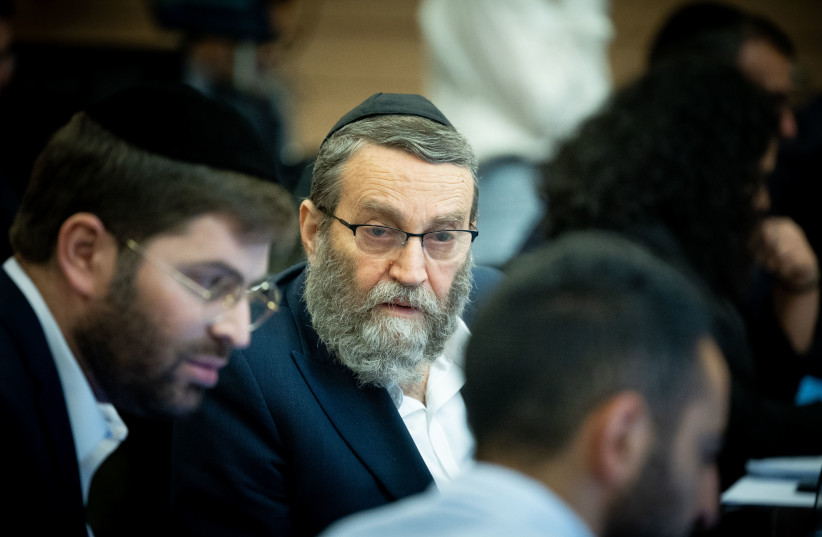The Knesset Finance Committee approved the 2023-2024 budget laws on Tuesday afternoon after a marathon voting session that began on Monday night, and the two laws are now set for their second and third reading on the Knesset floor, which will begin on Monday and continue throughout next week.
According to Israeli law, the budgets must pass by May 29 at midnight. If they do not pass on time the Knesset disperses automatically and the country heads to an election.
The budget laws and a number of accompanying laws are expected to pass on time, and after days of stormy debate that included shouting matches and even the physical removal of a Knesset member, the Finance Committee approved the controversial Municipal Tax (Arnona) Fund, which sparked a strike amongst dozens of municipalities which is expected to continue through Thursday.
The fund functions as a mechanism to redistribute wealth amongst the local authorities so as to incentivize them to earmark more land for housing and less for commercial purposes, with the long-term goal of lowering housing prices. The Federation of Local Authorities in Israel (FLA) claims that the Fund penalizes well-run municipalities by taking a chunk of their earnings, and could even lead to the financial collapse of some municipalities. The Labor Party said that it intends to challenge the Fund in the High Court of Justice, claiming that it discriminates against Israeli-Arab municipalities that suffer from insufficient urban planning.
Finance Committee to approve final version on Wednesday
The Finance Committee will reconvene on Wednesday to approve a final version of the coalition funds, which are intended to budget political agreements. The coalition funds add up to over NIS 13.6 billion for the 2023-2024 period, over six times the coalition funds spent by the previous government during the 2021-2022 period.

Approximately NIS 3.7 billion of the funds are earmarked for private or semi-private haredi schools or religious study academies (yeshivot) that are not required to teach core non-religious subjects such as English or mathematics.
Both KAN and Channel 12 reported on Tuesday evening that the hassidic faction Agudat Yisrael, one of two factions that make up part of United Torah Judaism, demanded an additional NIS 627 million in coalition funds. The Finance Ministry said that it did not intend to reopen the coalition agreements.
Haredi factions threaten budget with updated IDF draft bill
According to KAN, Agudat Yisrael threatened that if they did not receive the funding, they would not give up their demand to pass an updated haredi conscription bill by the time the budget passes on May 29 – a demand that is not realistic.
A number of organizations organized a march scheduled for Wednesday evening from the Ayalon Mall to Bnei-Brak, to protest what they called "the looting of the public coffer and passing nearly NIS 14 billion for coalition needs and political bribes."
Meanwhile, judicial reform negotiating teams representing the coalition and the opposition parties Yesh Atid and National Unity convened on Tuesday, contrary to reports that the talks had been temporarily frozen due to the ongoing budget legislation in the Knesset.
According to Maariv, the teams met for six hours and included a lecture by Dr. Micha Goodman that addressed the "anxiety and concern in both camps," as well as a joint meeting with President Isaac Herzog, who implored the sides to reach agreements as soon as possible and ignore growing criticism both from protest organizations against the reform and Knesset members who support the judicial reform, that the talks were dragging on unnecessarily and that there was no real interest to reach agreements.
